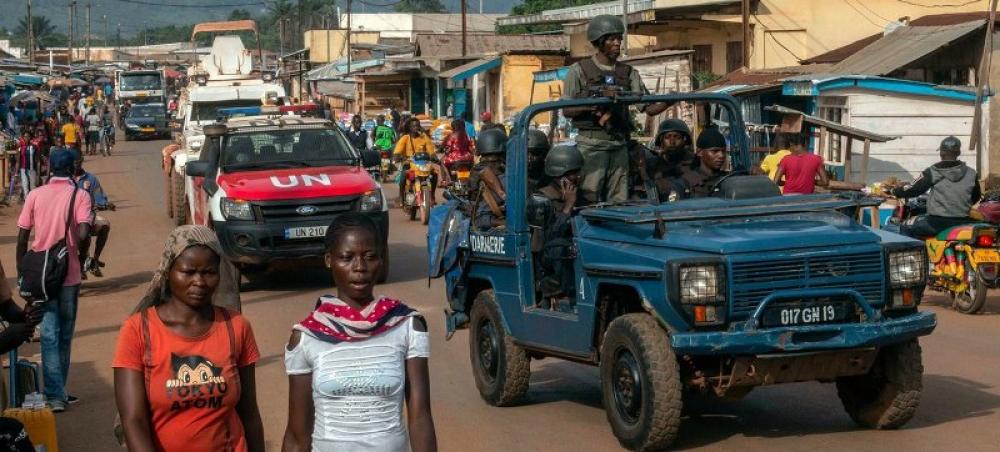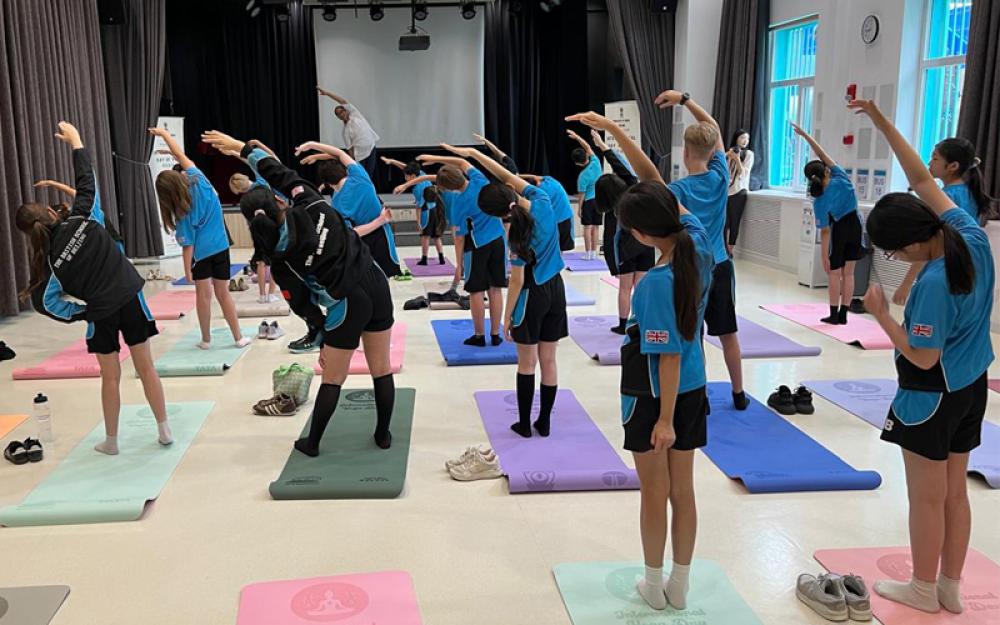Just Earth News | @justearthnews | 14 Mar 2020, 12:57 am Print

New York : In a video message recorded on Friday afternoon, UN chief António Guterres assured the world that the COVID-19 virus will peak, and the global economy will recover but, until then, “we must act together to slow the spread of the virus and look after each other”.
In the face of a health crisis unlike any other in our lifetimes, said the Secretary-General, it is natural to feel anxious, worried and confused. The most vulnerable in society are also the most affected, and the social and economic fallout will affect most of us for months to come.
However, “this is a time for prudence, not panic. Science, not stigma. Facts, not fear”, counselled Mr. Guterres.
No country can do it alone
The pandemic can still be controlled, preventing infections and saving lives, but it will take “unprecedented personal, national and international action”, he added.
This will involve putting effective containment strategies into place; activating and enhancing emergency response systems; dramatically increasing testing capacity and care for patients; readying hospitals, and developing life-saving medical interventions.
The crisis, said Guterres, has shown the importance of international cooperation, with governments working together to revitalize economies, expand public investment and ensure support for the most vulnerable.
WHO launches solidarity fund
At UN Headquarters in New York, many staff have left the building in order to work at home., by UN Photo/Loey Felipe
And in Geneva, the World Health Organization (WHO) announced the launch on Friday of a first-of-its-kind COVID-19 Solidarity Response Fund, to make it easier for private individuals, corporations and institutions anywhere in the world to come together to directly contribute to fighting the pandemic.
“We are at a critical point in the global response to COVID-19. We need everyone to get involved in this massive effort to keep the world safe”, said Tedros Adhanom Ghebreyesus, WHO Director-General.
Funds will go towards supporting actions outlined in the WHO’s COVID-19 Strategic Preparedness and Response Plan, to enable all countries – particularly those most vulnerable and at-risk, and with the weakest health systems – to prepare for and respond to the crisis.
These actions include the rapid detection of cases, stopping the transmission of the virus, and caring for those affected.
The funds will also go towards financing the purchase of protective equipment for frontline health workers; equipping diagnostic laboratories; improving surveillance and data collection; and other critical steps that need to be taken.
‘A space for people everywhere to fight this virus’
The shelves of many supermarkets in New York City are bare as people prepare to stay at home to avoid the coronavirus., by UN News/Beatriz Barral
“We can’t ignore the fact that this is a truly global problem, one that requires truly global solutions”, said Elizabeth Cousens, President and CEO of the UN Foundation, which created the fund, along with the Swiss Philanthropy Foundation and WHO.
“The case for global cooperation could not be clearer”, she continued. “Communities everywhere are affected, and people want to contribute. This new fund will create space for people everywhere, together, to fight this virus”.
Tedros added that “a lot of people and institutions have been saying they want to contribute to the fight against the novel coronavirus. Now they can”.
Support from the private sector has already been confirmed, with major companies such as Google and Facebook instituting a matched-funding scheme for contributions raised through their platforms.
Individual donors can also make online contributions to the Fund by visiting the website www.COVID19ResponseFund.org, and the UN Foundation can receive donations via cheque or wire from around the world via the email address, COVID19Fund@unfoundation.org.
‘Comprehensive approach’, needed, with Europe new epicentre
Any country that thinks ‘that won’t happen to us’ is making a deadly mistake. It can happen to any country Tedros Adhanom Ghebreyesus, Director-General, WHO
Addressing the media on Friday, Tedros declared that Europe is now the epicentre of the COVID-19 pandemic, with more cases and deaths there than in the rest of the world combined, excepting China, and more cases are now being reported every day than at the height of the initial Chinese outbreak.
Tedros announced that he was encouraged by the fact that many countries are now acting on the recommendations made in the WHO Strategic Preparedness and Response Plan, which provides evidence-based guidance that, said the WHO chief, every country can use.
“Our message to countries continues to be: you must take a comprehensive approach”, he added, noting that most countries now have a national plan, are taking a “multi-sectoral approach” (i.e. involving all areas of government, rather than simply health ministries), and have laboratory testing capacity.
“Any country that looks at the experience of other countries with large epidemics and thinks ‘that won’t happen to us’ is making a deadly mistake”, he warned. “It can happen to any country”.
Tedros looked to the experiences of China, South Korea and Singapore as examples of countries which have successfully prevented infections and saved lives, by putting in place measures such as aggressive testing and contact tracing, social distancing, and community mobilization.
The WHO continues to support efforts to prepare and respond, shipping supplies of personal protective equipment to a further 28 countries, in addition to the 56 countries who are already receiving such equipment.
WHO advice for government, business, and individuals
On Friday, UN health chief Tedros outlined four recommendations for governments, businesses and individuals.
World’s vulnerable need more help in COVID-19 crisis: UN agencies
Meanwhile, the UN Children’s Fund (UNICEF) and refugee agency (UNHCR) have issued reminders of the importance of ensuring that the world’s most vulnerable people are not forgotten during this health crisis.
UNICEF noted that, whilst handwashing with soap is critical to stem the spread, millions of people do not have even basic facilities at home. This amounts to some 3 billion people in the least developed countries. Furthermore, nearly half of all schools do not have a handwashing facility with soap and water, whilst a third have no place for children to wash their hands at all.
Refugees appeal
A $33 million appeal to support refugees was launched by UNHCR on Friday. Elderly members of the world’s forcibly displaced population are at particular risk, the agency warned.
The urgently needed funds will boost the preparedness, prevention and response activities to address the immediate public health needs of refugees, that have been prompted by COVID-19.
UNHCR’s response to the virus builds on its previous experience in dealing with the SARS, Ebola, and influenza outbreaks. These preparedness measures protect refugees before, during and after global health emergencies.
Photo caption and credit:
At UN Headquarters in New York, many staff have left the building in order to work at home., by UN Photo/Loey Felipe
- Every hour, 100 people die of loneliness-related causes, says WHO
- DR Congo: New initiative to eliminate HIV in children ‘a beacon of hope’, says UN
- WHO study shows tobacco control efforts protect three-quarters of the world’s population
- Drinking coffee can help you live longer, a new study reveals
- New study finds women who work night shifts are more likely to have asthma






